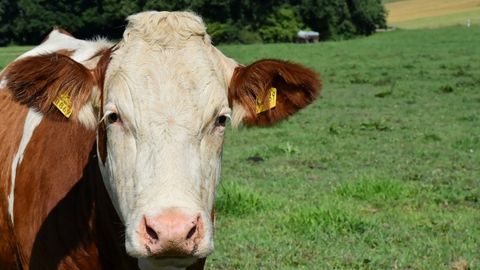Dangers of Overgrazing

There can be many problems associated with waste management on pasture ground that has been over grazed. The following is a list of potential problems:
- Plants are weakened, thus affecting their ability to produce regrowth.
- Plant crowns can be damaged and prevent future regrowth.
- The amount of plant biomass above ground is closely related to the amount of root biomass below ground. As above ground plant biomass decreases, the roots can begin to slough off – more so with severe grazing.
- With a smaller root biomass below the soil surface, fewer nutrients are taken up and utilized by the plants.
- As more nutrients are left in the soil unused, an increased risk of nutrient leaching below the rhizosphere (root zone) occurs.
- Once nutrients are below the rhizosphere, they can be carried off by water moving through the soil profile (leaching) and end up in the groundwater.
- When there is less plant biomass above ground, and fewer plant roots found in the soil, the chance for erosion increases greatly.
- When erosion occurs, any nutrients found in the soil can be carried off the field (runoff) and be lost. This can be an environmental problem, endangering neighboring waterways and/or fields. It can also be an economical problem as nutrients that could be used for desirable plant growth are lost – resulting in either reduced yields, or additional fertilizer costs.
- As the desirable pasture plants are overgrazed and damaged, more space is opened up for the introduction of invasive weed species and other unpalatable plants. Without the competition of native/desirable pasture plants, the weeds can thrive.
- With the increased presence of animals in the pasture, soil compaction can increase due to the treading effects of the animals and the lack of plant biomass. Soil compaction also reduces the amount of water infiltration and damages the soil structure.
- Volatilization from animal deposits (manure) is increased in overgrazed pastures.
Many factors impact animal manure that is deposited in a pasture. When a pasture is overgrazed, the impact of the manure and the nutrients it contains is greatly increased. Grazing alters N and P cycling by accelerating returns via animal depositions, and by increasing N losses through volatilization and leaching.

